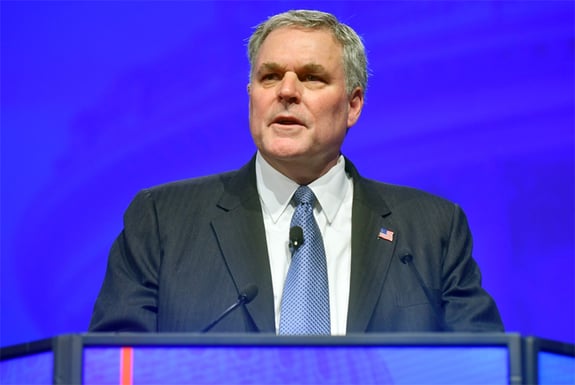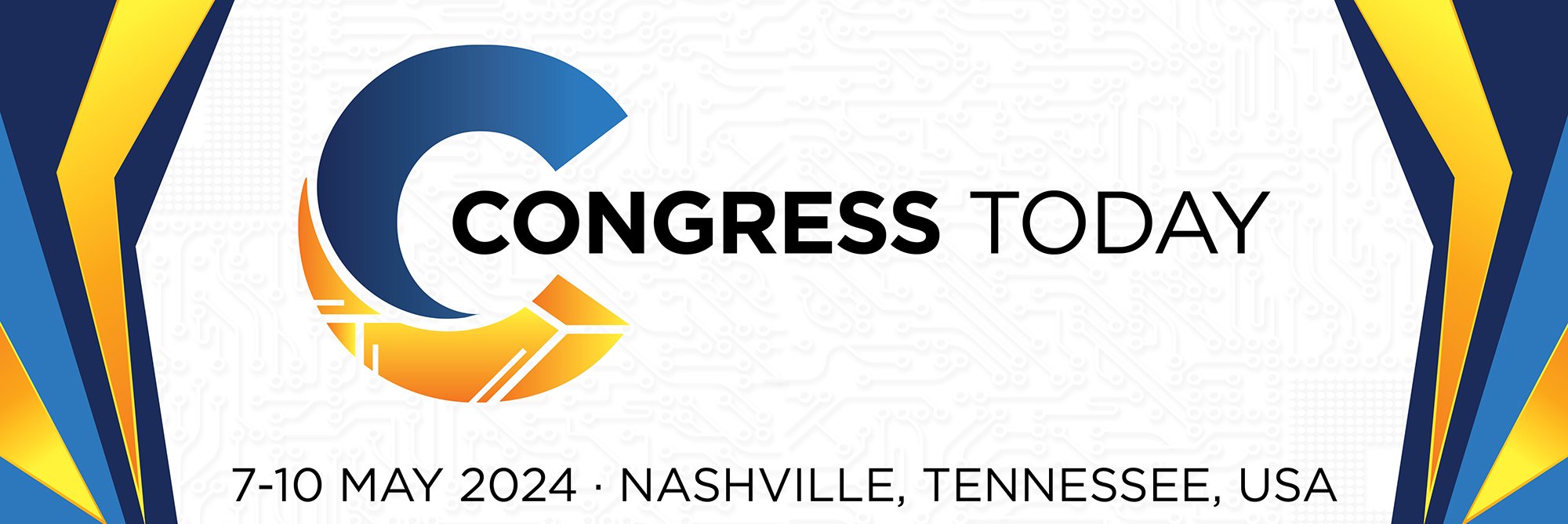Greg Mellen
May 18, 2019
Federal Government Executives Cover Litany of Topics During Friday’s General Session

 Saying he believed in “full engagement with the private sector” and groups such as the APA, Chuck Rettig, Esq., Commissioner of the IRS, delivered a populist message to attendees at the 37th Annual Congress Friday morning.
Saying he believed in “full engagement with the private sector” and groups such as the APA, Chuck Rettig, Esq., Commissioner of the IRS, delivered a populist message to attendees at the 37th Annual Congress Friday morning.
Confirmed as IRS Commissioner in Sept. 2018, Rettig oversees 80,000 employees and the government organization responsible for collecting approximately $3.5 trillion in tax revenue each year.
Of particular interest to those gathered for the morning session after Thursday’s late-night Congress party, Rettig spoke about work on the revamped Form W-4 and APA’s involvement. Initially planned for 2019, but now slated for 2020, a draft of the form, which is intended to more accurately reflect changes in the Tax Cuts and Jobs Act (TCJA), will come out in late May or early June.
Rettig said APA has been a key partner in discussions, citing Alice Jacobsohn, Esq., APA Senior Manager of Government Relations, and APA member Pete Isberg, VP of Government Relations for ADP and president of the National Payroll Reporting Consortium.
“I hope you feel my sincere gratitude to the people who work with us on this,” Rettig said. “IRS doesn’t believe that IRS operates alone.”
He also asked individual members to avail themselves of the chance to be part of the process.
“That draft for 2020 will take a lot of input from you all,” Rettig said. “We are open for constructive comments and whatever other comments you might want to deliver to us. We have thick skin. You don’t come on board in the IRS—certainly not in a leadership role—and expect everyone to say, ‘Wow, you’re doing a great job.’”
Rettig said he would appreciate it if every member looked at the drafts. In addition to the first draft, the IRS expects to release a second draft in July followed by a final form in November.
“If you have comments, make them directly, send them through APA,” he said. “Just make sure we get them. We really want to get it right.”
Simplicity, accuracy, privacy, and minimizing the burden on employers were among the variables that Rettig said were most important to the IRS.
“Not everyone’s the same, so getting the form the best it can be is important,” he said.
Rettig also spoke about the IRS’ efforts to upgrade its information technology to the tune of $2.3 billion-$2.7 billion over six years, in part to fend off an estimated 1.4 billion cyberattacks each year. He also talked about the IRS call center, which he says is the largest telephone service in the world and responds to FEMA calls in times of natural disasters.
Mostly though, Rettig said he was proudest of working alongside others and collaborating with the private sector.
“The success of the country depends on us getting all this right,” Rettig said. “Nobody wants to file a tax return. No one wants to pay taxes. But if you put it in the realm of what I’m talking about today, I think
you’ll understand the benefit of filing a return—the benefit of paying taxes and the privilege of being a person being able to live in this country.”
Grace Kim, Esq., Acting Deputy Commissioner for Operations for the 58,000-member Social Security Administration (SSA), also spoke about a wide range of issues.
She noted SSA’s decades-long relationship with APA, which she called the “industry’s voice for wage reporting and W-2 issues.”
Kim talked about SSA’s five-year technology upgrade, now in its second year, across its enterprise-wide systems. The changes would greatly improve benefits and disability applications processes and communications.
Payroll professionals and companies would also see enhancements to social security number (SSN) processes and employer wage reporting systems.
”We understand you are interested in making the process more user-friendly,” she said.
Kim also discussed the resumption of notices to companies with employees that have name and social security mismatches on W-2 Wage and Tax Statements.
According to Kim, SSA began sending out initial messages in September last year for tax year 2017. In April, SSA began sending out correction notices for 2018 Forms W-2. She said the letters would be sent out annually as long as mismatches continued. She urged payroll professionals to use the Social Security Number Verification Service (SSNVS) to resolve discrepancies.
Kim said SSA’s outreach with organizations like the APA has been “a cornerstone of our developing and moving forward with our IT modernization process.”
Attendees seemed to enjoy the address. In fact, Veronica Hernandez, CPP, Payroll Administrator of the Imperial Irrigation District, said the government address is the highlight of Congress.
“I purposely limit my partying the night before so I can make it here,” she said. “For me, it’s very exciting. I can’t wait to see what’s ahead.”


-1.png?width=150&height=71&name=MicrosoftTeams-image%20(1)-1.png)